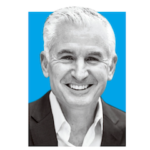 Jackie Freiberg has been a student of leadership since, as a child of seven or eight, her businessman father took her out to dinner and talked to her about his work, “almost as if I was a young adult,” said Freiberg, who will deliver an opening general session on “The Innovation Edge” at the PCMA Education Conference.
Jackie Freiberg has been a student of leadership since, as a child of seven or eight, her businessman father took her out to dinner and talked to her about his work, “almost as if I was a young adult,” said Freiberg, who will deliver an opening general session on “The Innovation Edge” at the PCMA Education Conference.
“Because of my father’s respect and his authenticity with me at that early stage, it piqued my interest,” Freiberg said. “[I wondered,] What makes people tick? Why do some people become successful? How do people gain respect?”
Freiberg’s passionate curiosity fuels her grownup mission, which she describes as uncovering the unconventional, business best practices of globally admired leaders. A self-described “big-time storyteller,” the San Diego–based consultant has coauthored four books that explore the intersection of great leadership and game-changing innovations, including the best-selling NUTS! Southwest Airlines’ Crazy Recipe for Business and Personal Success and last year’s Nanovation: How a Little Car Can Teach the World to Think Big and Act Bold, which profiles India’s Tata Motors.
Under Freiberg’s definition, true innovation requires not only that an idea be a good one, but that it makes the world a better place. And, as she told Convene in a recent interview, it’s everyone’s job.
“Here’s a guy [Tata Motors Chairman Ratan Tata] who noticed that the majority of vehicles on the road are motorcycles in India and other Third World countries, because that’s what people can afford. So he said, “Wait, they’re not safe. Can’t we lead an initiative that designs a car that’s about the same cost as a motor scooter, and then let’s disrupt the marketplace and try and sell vehicles to people who think they can only afford a motorcycle? But do it so that it’s safe in all weather, so people don’t have to go down in a monsoon?” It’s a remarkable case study of how to notice, lead, and disrupt.
Are there one or two lessons about innovation that you think are the most critical?
I think one of the most powerful lessons about innovation is that it should be everybody’s job. There are a lot of companies that have innovation centers. But I think that the innovation-center concept is what gets us to the place where people think that innovation is not their job. They think, “That’s what happens in the innovation tank.” Or, “That’s what happens over in that skunkworks group.” I think sometimes we don’t utilize or tap into or benefit from the insights, the gifts, and the talents of people that are absolutely on the front line and who perhaps aren’t at the innovation center or the labs.
Here’s a specific example. Here in San Diego, there’s a health-care system that is on fire in terms of creating service experiences for patients, physicians, administrators, and anybody and everybody that the system touches. One of the ways that they do that is that they get into the hearts and minds of all the people, places, and all pockets of the system. If you are trying to create an experience for everybody that you touch, everyone in the system has to be thinking about ways that they can create an experience.
So the phlebotomists realized that a number of the people that they perform blood draws on are senior citizens and elderly. They have to get to the hospital, find parking, get from the parking lot to the building, and then into the phlebotomist and have their blood drawn. And then they have to get back to their cars. So what the phlebotomists decided they would do is a drive-through phlebotomy. So if you or I were elderly, or not able to really get in and out of our car easily, we call and we say, “Hey, I’m going to be driving up at 10:20 today. Here’s my name and license plate number. Can you be there?” And so the phlebotomist comes to them.
That’s innovation. That is what happens when everybody in a health-care system realizes that it’s little things that make a difference. That doesn’t take an experiment in a lab or in a center. It took people who were noticing. Innovation happens when people at all places, in all levels, notice. Then they lead a charge or an initiative to make the change happen, which is innovation. And then they disrupt the current process or the current system.
Do you think that meetings play a role in innovation, and if so, in what ways?
Yes. Underlined, bolded, highlighted – yes. The reason why I say yes is because innovation tends to happen when we’re not stuck, frustrated, stressed out, or overloaded, but when we are passionate, alive, learning, on fire, excited, or drawn to something that we feel like we can make a difference in. And I think when we get to meetings, we are cleared from the clutter.
They give us an opportunity to rub shoulders with other people who are making a difference and who are looking at the world in slightly different and in sometimes radically different ways. So it changes and shifts our paradigms. I think that when we get the chance to go to meetings, we are sharing in an environment that allows us to “what if.” Innovations happen when we “what if” possible challenges to life, instead of “yeah, but” them to death. Meetings invite us to open our minds to new ideas, strategies, and insights. And that’s the feeding ground for innovation.
I think that words are powerful. And I don’t think we utilize the strength and the power of words enough. What if you open a meeting and said, “Okay, you’ve all come with a lot of stress and maybe a lot of baggage. We’re going to invite you right here and right now to leave that baggage at the door. We want you to begin this meeting with a clean slate, a fresh perspective, and a new lens through which you get to look at the way in which you lead, and the way in which you bring ideas to life or not. Let’s start the meeting off that way.”
I think that there are a number of innovative approaches to meetings where this is happening. They are not just fire-hosing people with, “Bring in a bestselling author and let them speak to their content. Bring in an industry expert and let them speak to their company. Then let’s have a panel discussion, and let them talk to you.”
What if the meeting became a little bit more balanced every time you have a session? If the lunch conversation was, not being talked to again, but having a dialogue or discussion. Asking, “What are you going to do with this information? How are you going to take it away?” Then create accountability partners and say, “ I’ve never met you before this conference, but let’s keep an email relationship going and tell me how you’ve applied it, where it worked, and tell me where it didn’t work.”



